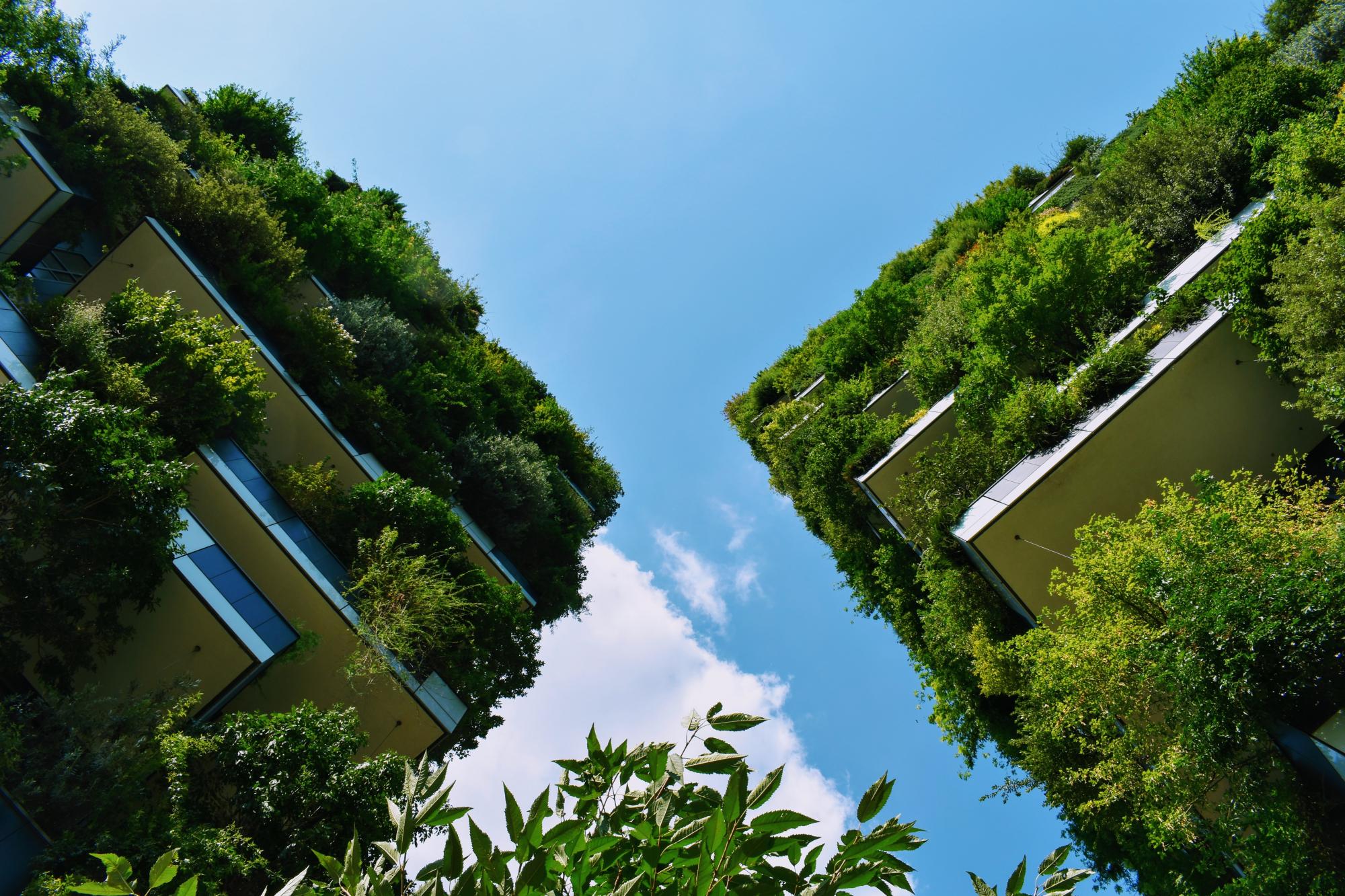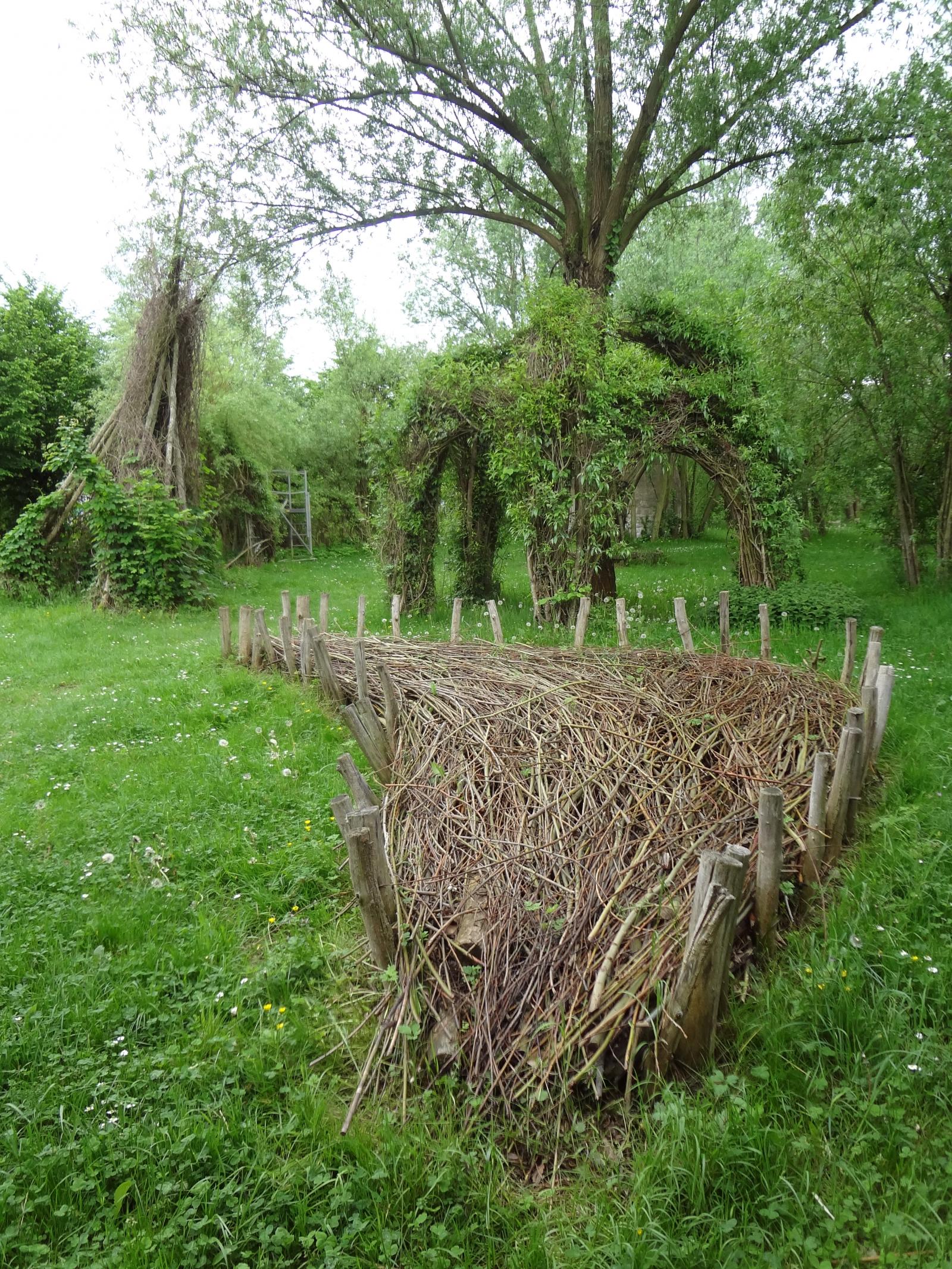Last updated: October 2021
The "Green Play City", a nature experience park on 4,500 sqm exists since 1999. Initiated and administered by the non-profit organization "Wissenschaftsladen" (short WiLa), it combines nature experience and recreation for kids and grown-ups with education about the environment and nature-based design while also serving as a place for social interactions through intercultural events (3,4). The initiative "Raus aus'm Haus" aims at expanding the educational and participatory component of the Green Play City. By closely collaborating with schools and kindergartens on options for related on-site workshops, project days or open-air classrooms will be explored and conceptualized (1).
Overview
Nature-based solution
- Parks and urban forests
- Large urban parks or forests
Key challenges
- Green space, habitats and biodiversity (SDG 15)
- Habitat and biodiversity conservation
- Green space creation and/or management
- Social justice, cohesion and equity (SDG 10)
- Environmental education
- Social interaction
- Health and well-being (SDG 3)
- Enabling opportunities for physical activity
- Cultural heritage and cultural diversity
- Preservation of natural heritage
- Promotion of cultural diversity
Focus
Knowledge creation and awareness raising
Project objectives
1. Intensification of participatory aspects & use of the green playtown by local actors, such as schools, kindergartens or associations for environmental education (2);
2. Acquiring educational institutions as long-term partners to integrate the area into their educational curriculum and activities (1,12);
3. Foster and facilitate the sustained integration of environmental and biodiversity aspects into official education curricula (2);
4. Use a participatory approach to develop tailored educational measures that combine the topics culture, biodiversity & nature and render the green playtown a more lively open-air classroom (2,12);
5. Creating a sense of ownership for the area and its elements, strengthening and expanding the network of volunteers to secure maintenance of the territory in the long run (1, 2);
6. Creating financial security for the project "Green Play City" and thereby securing its continuation (2).
Implementation activities
- To gather ideas for a sustained outdoor learning space, and extend activities that spark interest in nature-themes, inspire ownership and autonomous maintenance of elements of the area (2)
- The first year of the intervention was used for ideation in close exchange with the stakeholders (i.e. schools, kindergardens, associations, scouts etc.), the definition of possible measures based on stakeholders' needs and their pilot implementation.
- In the second year, ties with participating stakeholders were be strengthened, measures were become more concrete and options shall be seeked to combine measures of different stakeholders (12).
In parallel, a country-wide study and analysis of targeted activities, potentials and barriers of smaller institutions for environmental education will be conducted and published. Its results will inform the final concept (1,2). Additionally, the events portfolio and networks to attract more volunteers shall be extended (12).
Biodiversity conservation or restoration-focused activities
Biodiversity conservation:
- Protect and enhance urban habitats
- Preserve and strengthen existing habitats and ecosystems
- Protect species
- Undertake specific measures to protect species
- Undertake specific measures to protect valued species
- Means for conservation governance
- Public engagement
Main beneficiaries
- Public sector institution (e.g. school or hospital)
- Non-government organisation/Civil Society
- Citizens or community groups
Governance
Management set-up
- Led by non-government actors
Type of initiating organisation
- Non-government organisation/civil society
Participatory approaches/ community involvement
- Co-planning (e.g. stakeholder workshops, focus groups, participatory mapping)
- Dissemination of information and education
- Consultation (e.g. workshop, surveys, community meetings, town halls)
- Co-management/Joint management
Details on the roles of the organisations involved in the project
The Wissenschaftsladen Bonn eV (WiLa) association was responsible for the initiation, project design, fundraising and execution of the whole project. Therefore its serves as a coordinator of and negotiator with the different parties involved (school management, teachers, students, kindergarten management, children, local associations) but also a services provider since it offer extra-curricular educational programmes. The role of the students is supposed to change from participants in those measures to environmental advocates and active volunteers to support the initiative in the long run and spread the word (1, 2, 3).
Project implemented in response to ...
... an EU policy or strategy?
No
... a national policy or strategy?
No
... a local policy or strategy?
No
Financing
Total cost
€100,000 - €500,000
Source(s) of funding
- Public regional budget
- Other
Type of funding
- Earmarked public budget
- Donations
Non-financial contribution
Type of non-financial contribution
- Provision of land
- Provision of labour
Who provided the non-financial contribution?
- Citizens (e.g. volunteering)
Impacts and Monitoring
Environmental impacts
- Green space and habitat
- Increased conservation or restoration of ecosystems
- Reduced biodiversity loss
- Enhanced support of pollination
Economic impacts
- Unknown
Socio-cultural impacts
- Social justice and cohesion
- Improved social cohesion
- Increased opportunities for social interaction
- Health and wellbeing
- Gain in activities for recreation and exercise
- Cultural heritage and sense of place
- Increased appreciation for natural spaces
- Education
- Increased knowledge of locals about local nature
- Increased awareness of NBS and their benefits
Type of reported impacts
Expected impacts
Presence of formal monitoring system
Unknown
Presence of indicators used in reporting
No evidence in public records
Presence of monitoring/ evaluation reports
No evidence in public records
Availability of a web-based monitoring tool
No evidence in public records
References
1. Wissenschaftsladen Bonn. (2016). Aktuelle Projekte. Raus aus’m Haus. Accessed on September 17, 2020 Source link
2. Stiftung Umwelt und Entwicklung Nordrein-Westfalen. (2016). Raus aus’m Haus. Grüne Spielstadt in Bonn - Naturerlebnis in der Stadt. Accessed on September 17, 2020 Source link
3. Wissenschaftsladen Bonn. (2016). Grüne Spielstadt. Accessed on September 17, 2020 Source link
4. Wissenschaftsladen Bonn. (2000). Aus Hecken werden Häuser. Die grüne Spielstadt. Rundgang übers Weidengelände am Rande vom Meßdorfer Feld in Bonn-Dransdorf. Accessed on September 17, 2020, Source link Spielstadt/Source link
5. Stiftung Umwelt und Entwicklung Nordrein-Westfalen. (2016). Stiftung Umwelt und Entwicklung Nordrhein-Westfalen. Accessed on September 17, 2020, Source link
6. Bundesministerium für Umwelt / Naturschutz / Bau und Reaktorsicherheit. (2015). Grün in der Stadt − Für eine lebenswerte Zukunft. Grünbuch Stadtgrün. Berlin. Website not available.
7. Schöberl-Floimayr, C., Stadler, M. and Schmoll, A. (2015). Herausforderungen der ‘Stadtlandschaft’ in der Metropologregion Köln/Bonn. Zukunft gemeinsam gestalten. Masterplan Grün, Version 3.0. Köln. Accessed on September 17, 2020, Source link
8. Stadt Bonn. (2017). Integriertes Handlungskonzept Grüne Infrastruktur (IHK GI). Website not available
9. Stadt Bonn. (2017). Strategien zum Klimaschutz in Bonn. Website not available.
10. n.a. (2014). ‘KfW gibt Zuschüsse für grüne Dächer. Durch Grünpflanzen auf dem Dach können Energiekosten gespart werden. Die KfW-Förderbank gibt dafür ab Juni erstmals ZuschüSource link, Deutsche HandwerksZeitung. Available at: Source link.
11. BUND Kreisgruppe Bonn (2016) Der BUND Bonn stellt einen Bürgerantrag zur Dokumentation von Wärmeinseln. Accessed on September 17, 2020, Source link
12. Wissenschaftsladen Bonn (2016) ‘Raus aus’m Haus. Grüne Spielstadt in Bonn - Naturerlebnis in der Stadt. Projektantrag bei der Stiftung Umwelt und Entwicklung Nordrhein-Westfalen’. Bonn: Wissenschaftsladen Bonn, pp. 1–9
2. Stiftung Umwelt und Entwicklung Nordrein-Westfalen. (2016). Raus aus’m Haus. Grüne Spielstadt in Bonn - Naturerlebnis in der Stadt. Accessed on September 17, 2020 Source link
3. Wissenschaftsladen Bonn. (2016). Grüne Spielstadt. Accessed on September 17, 2020 Source link
4. Wissenschaftsladen Bonn. (2000). Aus Hecken werden Häuser. Die grüne Spielstadt. Rundgang übers Weidengelände am Rande vom Meßdorfer Feld in Bonn-Dransdorf. Accessed on September 17, 2020, Source link Spielstadt/Source link
5. Stiftung Umwelt und Entwicklung Nordrein-Westfalen. (2016). Stiftung Umwelt und Entwicklung Nordrhein-Westfalen. Accessed on September 17, 2020, Source link
6. Bundesministerium für Umwelt / Naturschutz / Bau und Reaktorsicherheit. (2015). Grün in der Stadt − Für eine lebenswerte Zukunft. Grünbuch Stadtgrün. Berlin. Website not available.
7. Schöberl-Floimayr, C., Stadler, M. and Schmoll, A. (2015). Herausforderungen der ‘Stadtlandschaft’ in der Metropologregion Köln/Bonn. Zukunft gemeinsam gestalten. Masterplan Grün, Version 3.0. Köln. Accessed on September 17, 2020, Source link
8. Stadt Bonn. (2017). Integriertes Handlungskonzept Grüne Infrastruktur (IHK GI). Website not available
9. Stadt Bonn. (2017). Strategien zum Klimaschutz in Bonn. Website not available.
10. n.a. (2014). ‘KfW gibt Zuschüsse für grüne Dächer. Durch Grünpflanzen auf dem Dach können Energiekosten gespart werden. Die KfW-Förderbank gibt dafür ab Juni erstmals ZuschüSource link, Deutsche HandwerksZeitung. Available at: Source link.
11. BUND Kreisgruppe Bonn (2016) Der BUND Bonn stellt einen Bürgerantrag zur Dokumentation von Wärmeinseln. Accessed on September 17, 2020, Source link
12. Wissenschaftsladen Bonn (2016) ‘Raus aus’m Haus. Grüne Spielstadt in Bonn - Naturerlebnis in der Stadt. Projektantrag bei der Stiftung Umwelt und Entwicklung Nordrhein-Westfalen’. Bonn: Wissenschaftsladen Bonn, pp. 1–9



